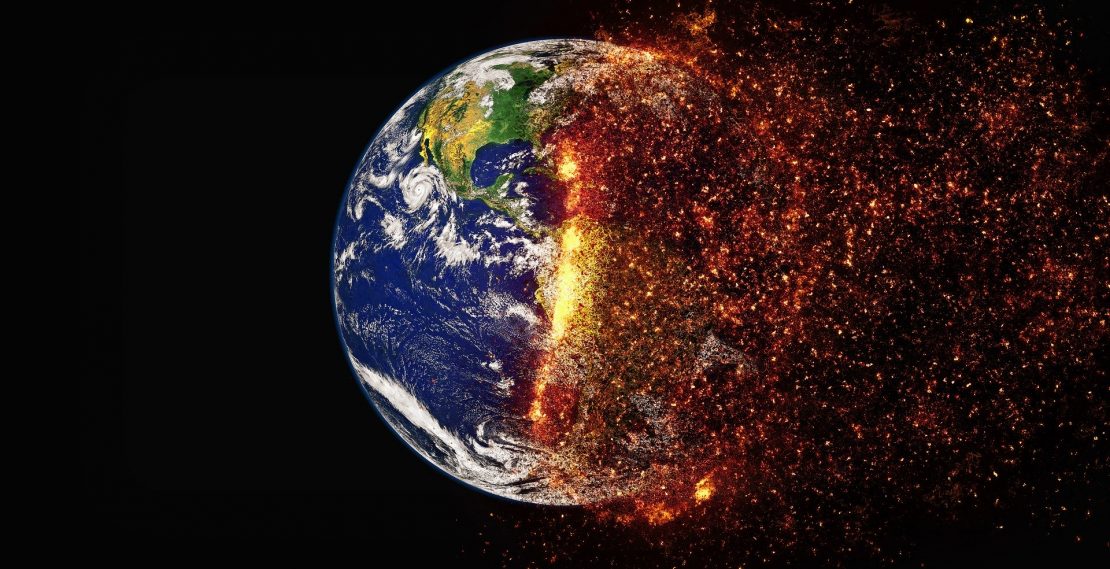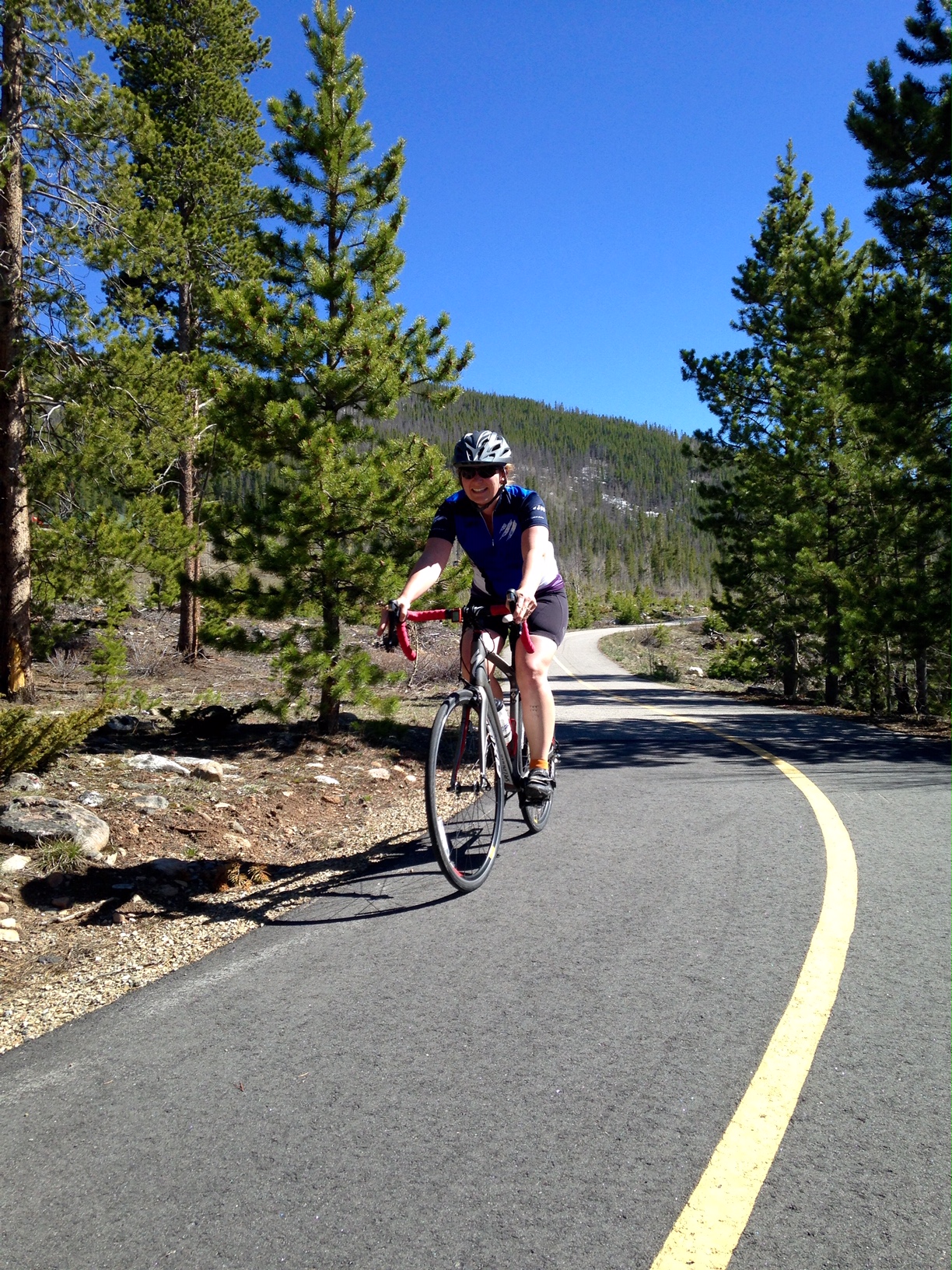
Dear Eartha, Last week, a friend mentioned Earth Overshoot Day. Can you explain what it is?
When we hear the word “overshoot” we might associate it with a positive statement – “Wow, you really overshot your goals!” Unfortunately, Earth Overshoot Day is nothing to celebrate. Simply put, Earth Overshoot Day is the date when we humans have used up all of the resources the Earth can generate in a single year.
This year, Earth Overshoot Day fell on August 22. That’s actually later than in previous years, meaning we didn’t squander Earth’s natural resources quite so quickly. But there’s an unusual reason for this, and it’s not that we’re becoming more conscious consumers (hint: global pandemic). In fact, if everyone was as good at gobbling up resources as we Americans, we’d need five Earth’s to sustain us. It wasn’t always like this – we lived within our means prior to the 1970s, and we can do it again. Before we talk about what needs to change, let’s take a look at how Earth Overshoot Day is determined.
Calculating Earth Overshoot Day  Every year, Global Footprint Network – the organization behind Earth Overshoot Day – calculates the discrepancy between global supply and demand for natural resources. In this equation, supply is the amount of natural resources the planet can generate in a year. And demand is what we use in a year.
So, what are the factors at play here? Think of land and products that we demand and consume – wood products, plant-based food, livestock, fiber and fisheries, urban infrastructure, pastures, and forest to absorb our carbon emissions. All of these are in steady demand. Of course, when you have more demand than you do supply, you can run into quite a bit of trouble. For example, you probably don’t think twice when you’re at the grocery store and see shelves stocked with seafood. But, what’s important to remember is that the majority of seafood is captured by large ships that catch fish faster than they can reproduce. Over two-thirds of fisheries around the world are on the verge of collapse because we don’t give them enough time to recover. This supply-demand nightmare not only puts a strain on ecosystems, but also on the food security and livelihoods of the 3 billion people who depend on seafood as a protein source.
COVID-19 and Earth Overshoot Day
You guessed it, the novel coronavirus is the primary factor that caused 2020’s Earth Overshoot Day to be over three weeks later than in 2019. As the world came to a pause, so did production and consumption. But to be truly sustainable, we cannot rely on disasters that force businesses to close and lives to halt. We must take action to reduce consumption of resources and improve quality of life for all.
Take Action: What’s Your Personal Overshoot Day?
Every year, Global Footprint Network – the organization behind Earth Overshoot Day – calculates the discrepancy between global supply and demand for natural resources. In this equation, supply is the amount of natural resources the planet can generate in a year. And demand is what we use in a year.
So, what are the factors at play here? Think of land and products that we demand and consume – wood products, plant-based food, livestock, fiber and fisheries, urban infrastructure, pastures, and forest to absorb our carbon emissions. All of these are in steady demand. Of course, when you have more demand than you do supply, you can run into quite a bit of trouble. For example, you probably don’t think twice when you’re at the grocery store and see shelves stocked with seafood. But, what’s important to remember is that the majority of seafood is captured by large ships that catch fish faster than they can reproduce. Over two-thirds of fisheries around the world are on the verge of collapse because we don’t give them enough time to recover. This supply-demand nightmare not only puts a strain on ecosystems, but also on the food security and livelihoods of the 3 billion people who depend on seafood as a protein source.
COVID-19 and Earth Overshoot Day
You guessed it, the novel coronavirus is the primary factor that caused 2020’s Earth Overshoot Day to be over three weeks later than in 2019. As the world came to a pause, so did production and consumption. But to be truly sustainable, we cannot rely on disasters that force businesses to close and lives to halt. We must take action to reduce consumption of resources and improve quality of life for all.
Take Action: What’s Your Personal Overshoot Day? How do you think your lifestyle compares with the rest of the world? Visit www.footprintcalculator.org to see how many Earth’s it would take to sustain your current lifestyle – you might be surprised. If you’re ready to make changes to reduce your ecological footprint, start here:
How do you think your lifestyle compares with the rest of the world? Visit www.footprintcalculator.org to see how many Earth’s it would take to sustain your current lifestyle – you might be surprised. If you’re ready to make changes to reduce your ecological footprint, start here:
 Every year, Global Footprint Network – the organization behind Earth Overshoot Day – calculates the discrepancy between global supply and demand for natural resources. In this equation, supply is the amount of natural resources the planet can generate in a year. And demand is what we use in a year.
So, what are the factors at play here? Think of land and products that we demand and consume – wood products, plant-based food, livestock, fiber and fisheries, urban infrastructure, pastures, and forest to absorb our carbon emissions. All of these are in steady demand. Of course, when you have more demand than you do supply, you can run into quite a bit of trouble. For example, you probably don’t think twice when you’re at the grocery store and see shelves stocked with seafood. But, what’s important to remember is that the majority of seafood is captured by large ships that catch fish faster than they can reproduce. Over two-thirds of fisheries around the world are on the verge of collapse because we don’t give them enough time to recover. This supply-demand nightmare not only puts a strain on ecosystems, but also on the food security and livelihoods of the 3 billion people who depend on seafood as a protein source.
COVID-19 and Earth Overshoot Day
You guessed it, the novel coronavirus is the primary factor that caused 2020’s Earth Overshoot Day to be over three weeks later than in 2019. As the world came to a pause, so did production and consumption. But to be truly sustainable, we cannot rely on disasters that force businesses to close and lives to halt. We must take action to reduce consumption of resources and improve quality of life for all.
Take Action: What’s Your Personal Overshoot Day?
Every year, Global Footprint Network – the organization behind Earth Overshoot Day – calculates the discrepancy between global supply and demand for natural resources. In this equation, supply is the amount of natural resources the planet can generate in a year. And demand is what we use in a year.
So, what are the factors at play here? Think of land and products that we demand and consume – wood products, plant-based food, livestock, fiber and fisheries, urban infrastructure, pastures, and forest to absorb our carbon emissions. All of these are in steady demand. Of course, when you have more demand than you do supply, you can run into quite a bit of trouble. For example, you probably don’t think twice when you’re at the grocery store and see shelves stocked with seafood. But, what’s important to remember is that the majority of seafood is captured by large ships that catch fish faster than they can reproduce. Over two-thirds of fisheries around the world are on the verge of collapse because we don’t give them enough time to recover. This supply-demand nightmare not only puts a strain on ecosystems, but also on the food security and livelihoods of the 3 billion people who depend on seafood as a protein source.
COVID-19 and Earth Overshoot Day
You guessed it, the novel coronavirus is the primary factor that caused 2020’s Earth Overshoot Day to be over three weeks later than in 2019. As the world came to a pause, so did production and consumption. But to be truly sustainable, we cannot rely on disasters that force businesses to close and lives to halt. We must take action to reduce consumption of resources and improve quality of life for all.
Take Action: What’s Your Personal Overshoot Day? How do you think your lifestyle compares with the rest of the world? Visit www.footprintcalculator.org to see how many Earth’s it would take to sustain your current lifestyle – you might be surprised. If you’re ready to make changes to reduce your ecological footprint, start here:
How do you think your lifestyle compares with the rest of the world? Visit www.footprintcalculator.org to see how many Earth’s it would take to sustain your current lifestyle – you might be surprised. If you’re ready to make changes to reduce your ecological footprint, start here:
- Improve home energy efficiency. Did you know that residential energy use accounts for one-third of Summit County’s carbon footprint? Make your home more energy efficient by signing up for an energy assessment with the High Country Conservation Center (HC3).
- Reduce car and air travel. Walking, biking, carpooling and taking the bus are much more enjoyable anyway. Do your best to limit air travel – try to combine trips and prioritize those most important.
- Reduce water use. Take shorter showers, run full loads of clothes and dishes, and reduce outdoor irrigation. What else might be increasing your home’s water use? The average household leak can account for 10,000 gallons of water every year – check toilets, sinks and faucets for leaks and address them as soon as possible.
- Compost your food waste. Sign up for HC3’s free food scrap drop-off program to turn what would have been wasted food into a valuable soil amendment.
- Buy less, reuse more. Only buy what you need and look for products made from recycled or post-consumer content.
